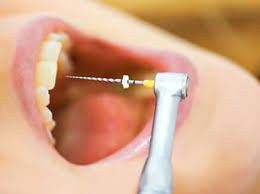Gum disease.
Gums are the soft tissues around teeth, that are typically pink, smooth and flat. When the gums are healthy they don’t hurt and don’t bleed while brushing or flossing and it is very important to check their conditions as well as teeth. Swollen gums are inflamed gums, and the causes can be different.
Swollen gums, that sometimes can bleed or hurt, can be caused by seasonal changes, that lower the immune defences, hormonal changes or by a poor nutrition, since a deficiency of vitamin C and a poor diet can affect the health of your gums.
Gum problems. Causes.
Sometimes red or swollen gums are a consequence of bad hygiene habits: brushing has to be done at least twice a day while flossing once. In cases of a poor oral care, debris of food and the proliferation of plaque and tartar can give rise to cavities, tooth decay, gingivitis and gum diseases.
If you are suffering from gum swelling that lasts longer than a few days, it is better to turn to the dentist or the dental professional. They can check the health of the teeth and of the gums, correct your diet, improve your oral hygiene habits and the techniques of brushing and flossing.
When gums are swollen, red, or bleed while brushing or flossing, the most important thing to do at home is to follow a proper oral care every day; other useful tips are eating fruit and vegetables, rinse the mouth with water and salt, drink water especially between meals, avoid cold or hot drinks or foods, and avoid alcohol and tobacco, that irritates gums.
Stress might be another source of inflammation since it affects your immune system and makes it difficult for your body to combat bacteria. It is advisable to reduce stress and try to sleep well.
Swollen gums. Other causes.
Other factors that can cause swollen gums are dental braces or faulty dental restorations, mouth ulcers, medications, and medical treatments. If you have changed your toothpaste or mouthwash brand, new ingredients can cause a reaction with the gums.
In each of these cases, your dentist or the dental hygienist can help you to understand the origins of inflammation and treat it.





